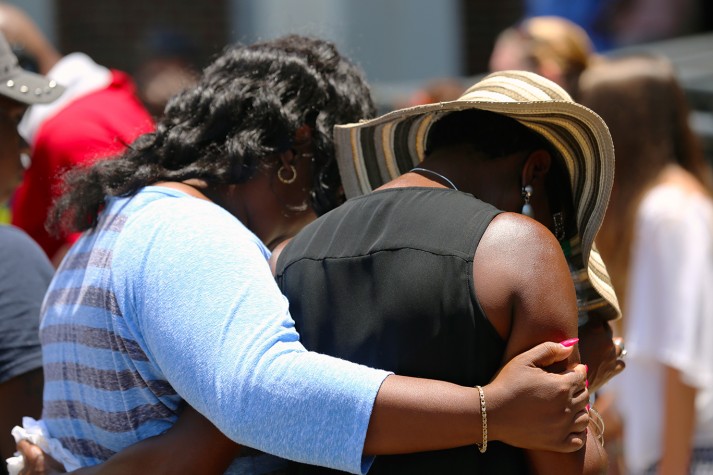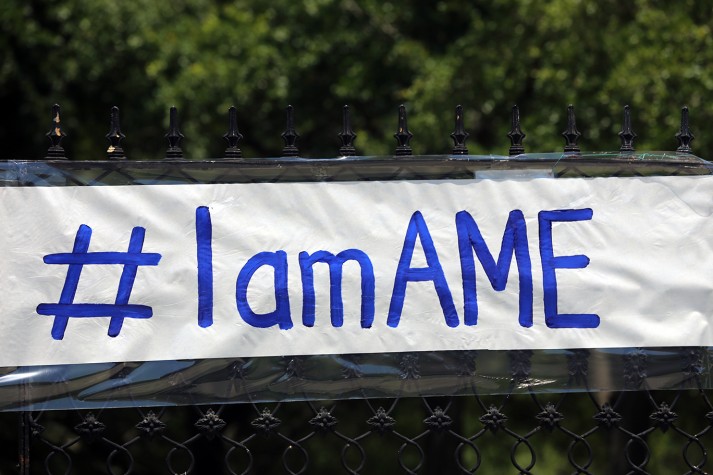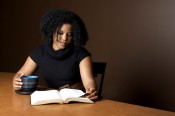
The blazing heat of summer in Charleston, South Carolina, didn’t matter on Thursday, as a large crowd gathered just off the city’s popular King Street.
Less than 24 hours prior, on June 17, nine people meeting for a weekly Bible study at Emanuel African Methodist Episcopal Church lost their lives after a gunman opened fire.
So at the prayer vigil outside Morris Brown African Methodist Episcopal Church, both sweat and tears poured while the community cried out for unity and the peace of God.
“Anytime you are praying and worshipping together there is power. Anytime there is calling on the blood of Christ, there is power,” said local Anglican pastor Chris Warner. “It’s going to be what we do out of this that is part of the real power, ultimately, that affects the community and changes things.”

The service, organized by Charleston-area church leaders, started with the crowd singing “Amazing Grace” in unison—a beautiful moment in the midst of tragedy. Meanwhile, word that the suspected gunman had been captured hit news sites and social media.
“I just prayed this morning and felt I needed to be here,” said Alicia Delesline. She was born and raised in Charleston and was moved to tears reflecting on the lives lost.
You Can Have Peace
Real, lasting peace is possible. But there’s only one way to find it.Find Peace
Local residents say racial tension in Charleston has been building for years. The port city was an entry point for many African slaves.
That unsettling history most recently came to a boiling point in April after the death of Walter Scott, an unarmed black man who was shot in the back while running from a white police officer after a traffic stop.
Following this, Emanuel A.M.E. Pastor and State Sen. Clementa Pinckney, who was killed in Wednesday’s shooting, rallied behind the new law requiring police officers to wear body cameras. His church headed up numerous civil rights movements in Charleston, earning the name “Mother Emanuel.”
“I got ordained at Mother Emanuel. This is my home church. My children got baptized there,” Rev. Claudia Lawton said. “We’ve got to be in prayer for unity. Jesus Christ said whosoever believed in Him shall not perish but have everlasting life. That’s a prayer of unity.”
And although Charleston’s barriers still remain, the desire to unite was evident at the vigil, with people of all colors holding hands, embracing and praying for one another.
“It’s giving (the community) a place to be and a place to come together,” 18-year resident Kelly Baudin said.
More than anything, though, people want change.
“I ask you to be brave, I ask you to be bold,” one church leader told the crowd. “I think we have seen that we are called to be responsible and to make the change in our community. No one is going to do this for us.”
Donald Cid, 21, is among the young people in Charleston passionately calling for a new generation of leaders.
“We need people who want to (non-violently) revolutionize and bring the Holy Spirit back to the Holy City,” he said.
But first, there must be forgiveness.
“I see God’s hand in Charleston, and I see people responding to God,” Pastor Warner added later.
“I see them handling this in love, compassion and strength, and I think this will build us even stronger together.”


